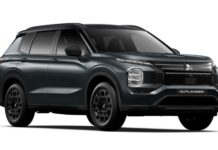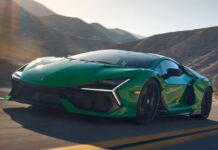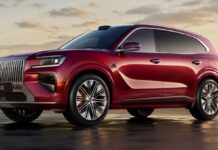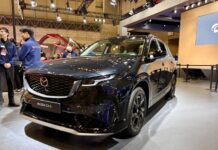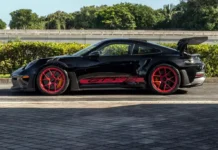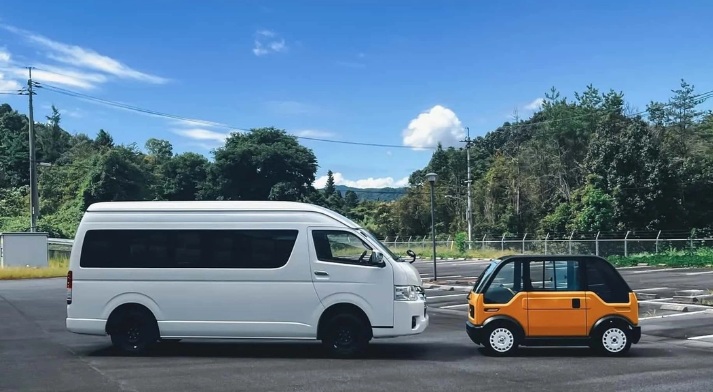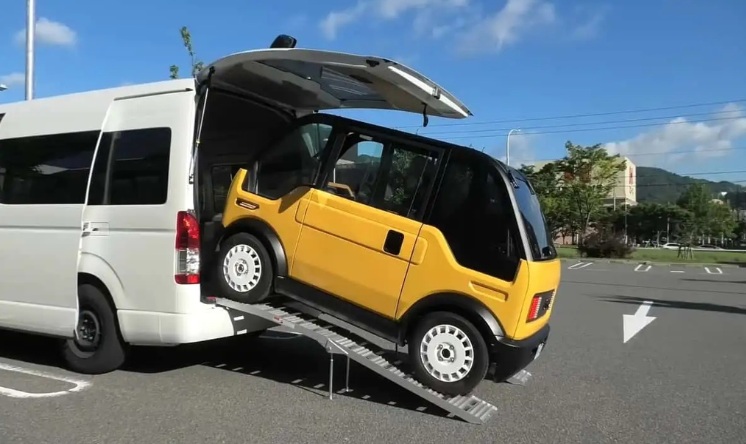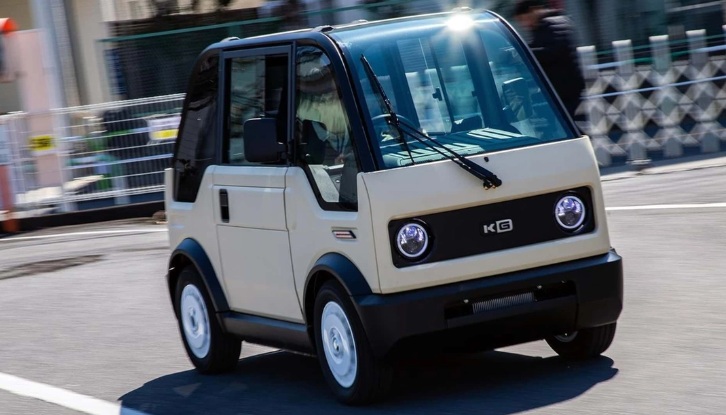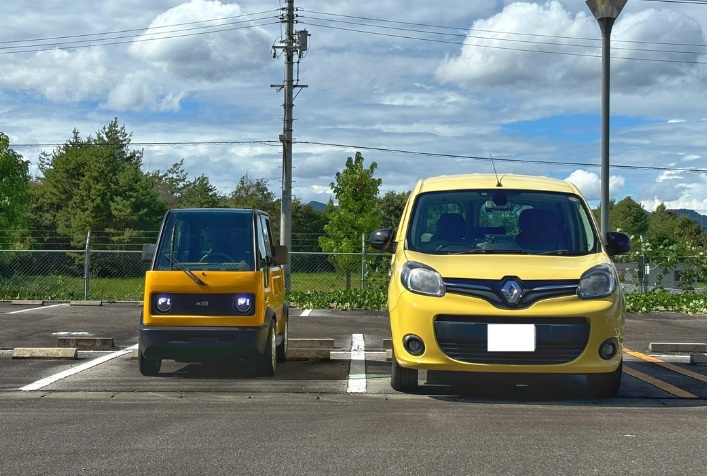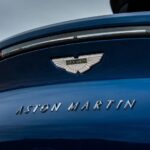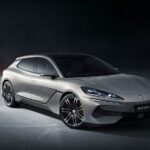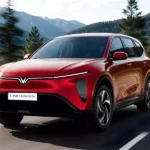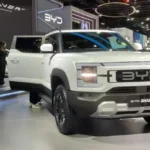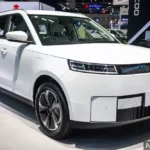While traditional Japanese automakers are still struggling to keep up in the global electric vehicle race, some domestic startups are showcasing their exceptional innovation and adaptability.
KG Motors, a Hiroshima-based startup founded in 2022, is gaining attention with the launch of its ultra-compact electric car called Mibot, designed specifically for congested urban environments.
When Mibot first appeared on social media, it quickly went viral due to its petite appearance. With overall dimensions of 2,490 x 1,130 x 1,465 mm (length x width x height), this car is even smaller than the Wuling Hongguang Mini EV and only slightly longer than a Honda SH scooter.
Mibot’s design embodies the quintessential “kei car” style of Japan, featuring classic round headlights and friendly curves. Despite its modest size, the vehicle is surprisingly well-equipped, boasting an 8-inch touchscreen, air conditioning, wireless connectivity, over-the-air software update capability, and a panoramic glass roof.
In terms of performance, Mibot is fitted with a 7.68 kWh battery pack, enabling it to travel up to 100 kilometers on a single charge using AC 100V electricity (with a charging time of approximately 5 hours). Its maximum speed of 60 km/h is more than sufficient for personal mobility within city limits.
KG Motors asserts that most Japanese residents today use their cars for short distances and often drive alone. The company argues that conventional vehicles, even those in the minicar segment, offer more features than necessary, resulting in unnecessary costs and energy consumption. Mibot is positioned as an optimal solution to address this issue.
KG Motors plans to launch Mibot at a price point of approximately 1.1 million yen (roughly 197 million VND) and deliver the first batch of 3,000 vehicles in 2026.
While Mibot may not be for everyone, it represents a fresh approach to urban transportation, prioritizing compactness, efficiency, and personalized experiences.
TH (Tuoitrethudo)
The Ultimate Wordsmith: Crafting Captivating Copy for Aston Martin’s Electrifying Future
“Aston Martin Revamps Operations: Streamlining Workforce, Strategically Postponing Electric Vehicle Launch”
The luxury automotive brand is planning to lay off a significant number of employees as part of its financial turnaround strategy. In a bid to streamline operations and reduce costs, the company is making tough decisions to ensure long-term sustainability. This move is a bold statement of intent, demonstrating their commitment to emerging from this challenging period with a renewed focus and vigor.
The Denza Z9 GT: Taking on Porsche in the European Market
After Mercedes-Benz’s exit from the joint venture, Denza, the electric car brand born out of the collaboration with the German automaker, has set its sights on Europe once again. With a new ambition to rival Porsche, but at half the price, Denza is ready to take on the European market with a fresh perspective.
Unleashing the BYD Shark 6: A Game-Changing Pickup Truck for the Asean Market and Beyond?
The BYD Shark 6 PHEV has been unveiled in Thailand, with a price tag of 1.699 million Baht. This sleek and sophisticated plug-in hybrid electric vehicle is now available to Thai customers, offering a unique blend of performance, luxury, and environmental consciousness. With its cutting-edge technology and stylish design, the Shark 6 PHEV is set to make waves in the automotive industry and redefine the driving experience in Thailand.

